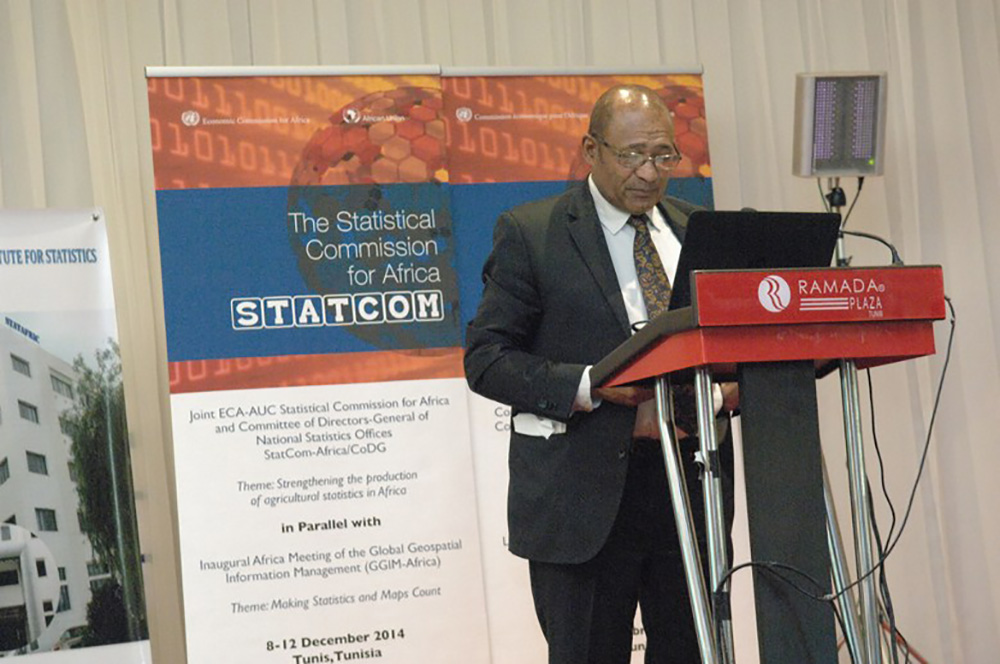An appeal has gone to African statisticians and data experts to initiate a road map for the modernisation of the continent’s official statistical systems to provide reliable information for informed decision-making.

Ethiopia’s Deputy Prime Minister and Minister for Foreign Affairs, Mr Demeke Mekonnen, made the appeal while addressing the joint opening session of back-to-back meetings as part of the ‘Eighth Statistical Commission for Africa (STATCOM) held in Addis Ababa, Ethiopia.
Mekonen stressed the need for “comprehensive tools that can enable governments to create and execute the policies required to achieve the digital goals needed for regional integration as efficiently as possible.
The NewesZenith reports that the theme of the meeting is “Modernising data ecosystem in Africa to support regional integration”.
The Eighth Statistical Commission for Africa seeks to strengthen the inter-related natural linkages between data, statistics and civil registration.
“It is unfortunate that Africa continues to have the highest proportion of unregistered births and deaths in the world,” Mekonen said, noting that in the COVID-19 Pandemic period, only a handful of countries were capable of producing sufficient quality mortality and cause of death statistics to guide public health decision-making and planning.
“This situation, which has endured for a very long time, must change and this event should define the steps Africa must take to stop the tragedy of invisibility.”
Through its Statistics Service, he said that Ethiopia has made significant progress in the electronic collection and transfer of data using PDAs, CAPIs and tablets for surveys, censuses and transmission of data, greatly reducing costs and human resource demands.
“Furthermore, the country’s Consumer Price Index (CPI) is now being released between the first and fifth days of the month – marking a significant improvement in timeliness.
“More work is underway to collect new data for monitoring national plans and SDGs, including agriculture, migration, urban agriculture pilots, livestock, production and postharvest loss,” Deputy Prime Minister said.
Touching on some key aspects of this week’s theme, Mr Oliver Chinganya, Director of the ECA’s African Centre for Statistics bemoaned the negative impact of the COVID-19 pandemic on civil registration and vital statistics systems, particularly in Africa, leading to the absence of vital data.
“Data and statistics have never been more significant than they are now – they are needed to influence policies and measure progress to attain the 2030 Agenda for sustainable development as well as the African Union Agenda 2063,” Chinganya said.
He stressed the importance of modernising Africa’s data for facilitating regional integration and for “enhancing the accuracy and efficiency of decision-making in support of a stronger regional integration in the continent,”
He argued that barriers to economic progress can only be overcome through a reliable data ecosystem.
Chinganya challenged African countries to participate in creative and innovative methods to solve some of the major obstacles facing National Statistics Offices such as limited funding, insufficient personnel, inadequate Information Technology infrastructure and inadequate legislative framework.
On the integration of geography and statistics under the auspices of United Nations Global Geospatial Information Management for Africa, he called for a change in “the way we generate and package data and statistics to guarantee that the narrative of Africa’s progress is properly captured.”
The director pledged ECA’s commitment to providing technical assistance to member countries to restructure and modernise their statistics systems.
In a keynote address at the Eighth Session of STACOM, Chris Baryomunsi, the Uganda Minister for ICT and National Guidance stressed the need to develop agile statistical systems that are resilient to crises such as COVID – which heavily impacted statistical production and National Statistical Systems.
Baryomunsi emphasised the need to improve administrative data and civil registration systems which together account for up to 70 per cent of the data required to monitor national development processes.
“It has been declared a ‘scandal of immense proportion’ that at the turn of the third millennium, few countries in Africa have complete civil registration systems.
“This scandal has had serious implications for vital statistics, human and constitutional rights, policy and national development,”” he said.
The NewsZenith reports that for the first time, STATCOM is being held back-to-back with three other related meetings on information management systems, modernising the statistical system and civil registration.